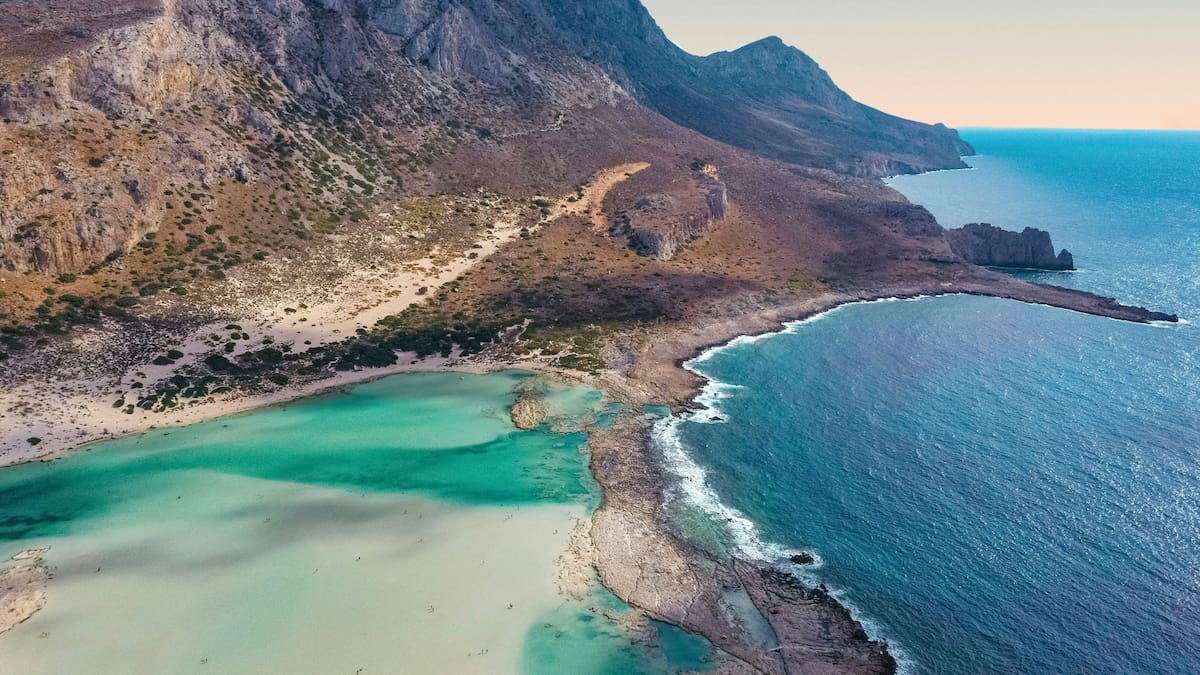The pavements where we’re staying are cracked and crumbling, ending suddenly in potholes that would spawn a batch of furious letters to the editor. But not here. The same with the unrailed, unlit and quite unguarded edges that drop five metres on to rocks. Be careful now, the world is hazardous. Take care of yourself and your children. No one else will. And in the end, well, it’s hot.
Old men with pumpkin guts and hairy shoulders and nothing to do are installed in ones and twos on benches, low stone walls and shaded balconies for another day of backgammon and grumbling and flagrant staring at the slimmer girls in barely-existent bikinis. As the sun passes east to west they will shift west to east for shade, and eat olives and sausage and drink rough wine, as Homer did. It doesn’t matter as much as all that.
A bow-legged widow, four foot tall and dressed in a simple sleeve of black, totters down the broken street before the heat becomes too much, before it drives the world indoors. Her little shopping bag is ample for her needs. She steps into the cramped general store. ‘Kalimera,’ she mutters to no one, to her world.
The young have the energy. A schoolyard’s full of little girls, gracile wisps of flesh, all coy and squealing. Boys kick a football in an empty lot of red earth and rubble and do not seem to sweat. The teenagers are briefly beautiful and know it, all haughty slim on little motorbikes, the kings and queens of flesh, till imperceptibly their beauty thickens and they become their parents, fattening in thigh and belly to early middle age. Five thousand years of the same story.
The sea laps in and out, its shallows warm as blood. Beside the harbour wall swim little shoals of mullet. This afternoon we saw a sea turtle, a metre long and half a metre wide, right by the harbour wall, a tortoise of the water, a thousand times as old as human beings, with a beaked nose, scaly flippers and ancient imperturbability. Little fishing boats putter in and out of the harbour and a few Zorba-the-Greek characters sit mending nets, but there is better fishing to be had on land. We tourists are an inexhaustible resource, forever replenished by Easyjet. We fly in from cold wet cities to the north, lured by sun and sea, the great simplicities. Our flesh announces us, so plump and white and vulnerable, inviting biting by the sun, inviting fleecing. The Cretans go to it with a will.
We aren’t the first invaders. Five thousand years ago this place was Minoan. Two thousand years later, that culture abruptly ended. No one knows why. Samians came here seeking refuge. The Romans came and sacked the place then granted it independence. The Byzantines took over when the Romans left. In the ninth century the Saracens sacked the island, then lost it again within a century to the Byzantines once more.
Venice took Crete in the thirteenth century, lost it to the Genoese four hundred years later, then got it back, in ruins, and rebuilt it. The Turks then besieged and took the island, only to lose it back again, eventually, to Greece. So who are the Cretans? Mongrels like the rest of us, and all the better for it. Though in the end it doesn’t matter as much as all that. The sun comes up. The tide goes in and out. It’s hot.




